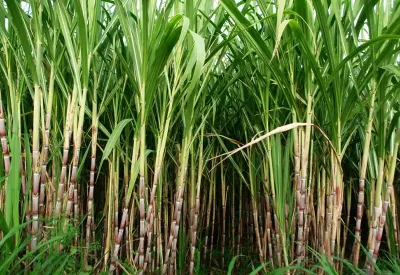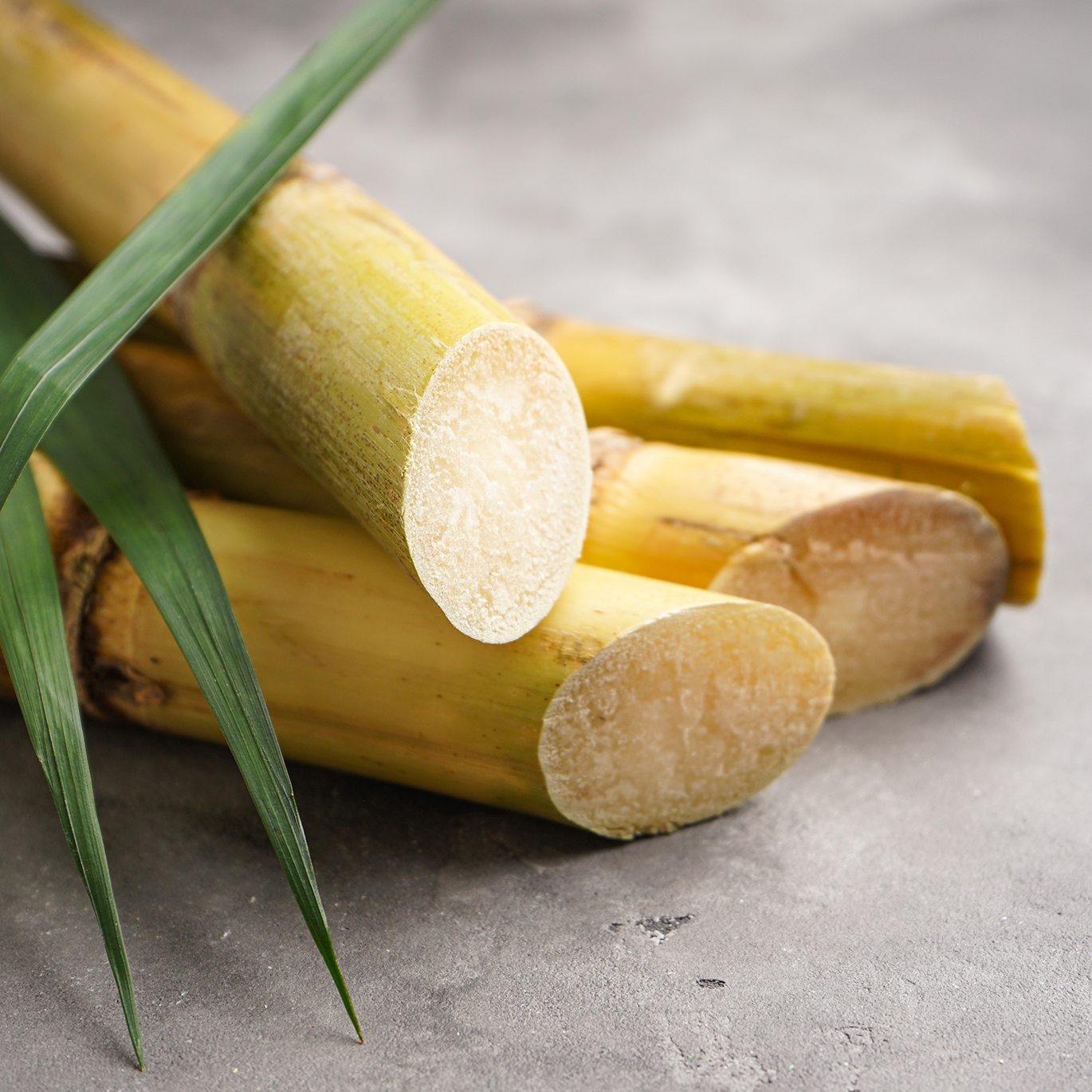Sugar beet vs sugar cane: How growing conditions impact output
Wiki Article
The Great Dispute: Sugar Beet Vs Sugar Cane - Which Is the Superior Option for Sweeteners?
The debate over sugar beet versus sugar cane as the recommended sweetener involves numerous critical elements. Each offers distinctive benefits and obstacles relating to production, taste, and health ramifications. While sugar beet might interest those prioritizing sustainability, sugar cane has its own social and culinary relevance. As consumers end up being extra mindful of their selections, the concern remains: which sugar absolutely sticks out in today's market?The Origins of Sugar Beet and Sugar Cane
Sugar cane has been grown for thousands of years, primarily in tropical regions, sugar beet arised as a substantial option in cooler environments during the 18th century. Sugar cane, indigenous to Southeast Asia, was first trained around 8000 BCE and spread out worldwide through profession and exploration. Its high sucrose material made it an important plant, bring about substantial plantations in areas like the Caribbean and Brazil.On the other hand, sugar beet was first cultivated in the Mediterranean around the 18th century, specifically acquiring grip in Europe as a response to sugar cane scarcities. The plant grows in pleasant climates, making it ideal for regions with colder climate. The discovery that sugar might be extracted from beet roots changed sweetener manufacturing, specifically throughout the Napoleonic Wars when trade limitations restricted cane sugar gain access to. The surge of sugar beet growing marked a critical moment in the history of sugar, offering a local resource for many countries.
Manufacturing Processes: From Area to Sweetener
The production procedures of sugar beet and sugar cane expose considerable differences in cultivation strategies, harvesting approaches, and improvement phases. Comprehending these subtleties is vital for appreciating how each plant adds to the total sugar market. This comparison highlights the distinct attributes and difficulties connected with both sources of sweetness.
Growing Strategies Contrast
Growing strategies for sugar beet and sugar cane expose distinct approaches that influence their manufacturing procedures, from field preparation to last sweetener removal. Sugar beet farming commonly entails raking and traumatic to create a great seedbed, adhered to by seeding in rows to assist in development. This crop benefits from cooler climates and is commonly grown in spring. In comparison, sugar cane is typically grown in furrows with pre-sprouted cane pieces, calling for a warm, exotic climate for perfect growth. Cane fields are often set out to handle water efficiently, offered its requirement for substantial watering. Both plants are managed with certain fertilization and pest control techniques tailored to their growth environments, impacting yield quality and efficiency in sweetener extraction.
Harvesting Methods Discussed
Effective collecting techniques for sugar beet and sugar cane play a crucial function in ensuring maximum return and top quality of the end product. Sugar beet collecting generally employs mechanical root harvesters, which effectively root out the beetroots from the soil and separate them from the vegetation. This method decreases damages to the beets and decreases labor costs. In comparison, sugar cane harvesting might use either manual work or equipment, depending on the region and scale of production. Mechanical farmers reduced the cane at the base and often strip away the fallen leaves, enhancing the procedure for bigger fields. Both techniques call for mindful timing to ensure the crops are harvested at peak sweet taste, affecting the quality of the last sweetener product.Improvement Process Distinctions
While both sugar beet and sugar cane undergo strenuous refinement processes to change their raw kinds into functional sweeteners, the methods employed vary substantially. Sugar beet improvement begins with cleaning and cutting the beets right into thin cossettes, complied with by diffusion, where warm water extracts sucrose. The resulting juice is after that cleansed, concentrated, and taken shape. In comparison, sugar cane handling entails squashing the stalks to remove juice, which is then cleared up making use of lime and warm to remove impurities. The cane juice is vaporized to form syrup before crystallization. Eventually, while both procedures intend to generate white sugar, the unique techniques highlight the special characteristics of each source and their ramifications for flavor and pureness in the end product.Nutritional Profiles: What's in Your Sweetener?
The dietary accounts of sugar beet and sugar cane existing unique distinctions worth examining. This comparison consists of elements such as caloric web content, mineral and vitamin presence, and variants in glycemic index. Understanding these variables can offer understandings into just how each sweetener may affect total health and wellness.Caloric Web Content Contrast
Understanding the caloric material of sugar beet and sugar cane is necessary for those conscious of their dietary selections. Both sweeteners mainly contain sucrose, adding a similar caloric worth. Commonly, sugar beet consists of about 387 calories per 100 grams, while sugar cane has regarding 390 calories per the very same quantity. The mild difference in calorie material might not greatly impact most diets; however, it is impressive for those closely monitoring their caloric consumption. Additionally, both sugar resources offer power but do not have necessary nutrients, making them primarily sources of empty calories. People looking for healthier options may want to take right into account these aspects when choosing between sugar beet and sugar cane as their favored sugar.Mineral and Vitamin Content
Caloric material supplies just a component of the photo when reviewing sugar beet and sugar cane. Both sources of sugar differ considerably in their mineral and vitamin profiles. Sugar beets are incredibly rich in important nutrients, including potassium, magnesium, and iron. They also include tiny amounts of vitamins such as B6 and folate, adding to their nutritional worth. On the other hand, sugar cane provides a various collection of advantages, containing calcium, phosphorus, and traces of B vitamins. While neither choice is a substantial resource of nutrients contrasted to whole foods, sugar beetroots may have a slight side due to their greater discover this mineral content. Eventually, consumers looking for nutritional take advantage of sweeteners should take into consideration these distinctions in profiles.Glycemic Index Distinctions
Glycemic index plays an important duty in assessing exactly how different sugar influence blood sugar level degrees. Sugar beet and sugar cane display noteworthy differences in their glycemic responses. Normally, sugar beet has a reduced glycemic index compared to sugar cane, leading to a slower and steadier rise in blood sugar levels after usage. This feature might make sugar beet a more suitable option for people managing diabetes or those seeking to maintain steady energy degrees. In comparison, sugar cane has a tendency to cause an extra fast spike in blood sugar, which could bring about quicker energy collisions. Recognizing these distinctions is considerable for consumers aiming to make enlightened dietary selections relating to sweeteners and their influence on general health and wellness.Ecological Effect: Sustainability Considerations
While both sugar beet and sugar cane are essential resources of sugar, their ecological effects and sustainability considerations differ considerably. Sugar beetroots, mostly expanded in temperate areas, normally require less water and can be grown in varied environments. They likewise take advantage of plant rotation practices, which enhance soil health and lower the demand for synthetic plant foods. Nonetheless, extensive farming of sugar beets can bring about soil deficiency and pesticide usage.On the other hand, sugar cane flourishes in exotic environments and often requires considerable water resources for irrigation (Sugar beet vs sugar cane). The monoculture nature of sugar cane farming can aggravate soil disintegration and biodiversity loss. In addition, the burning of cane fields before harvest launches carbon discharges and adds to air pollution. Both plants face obstacles associated to climate adjustment, however their differing farming methods exceptionally influence their total sustainability profiles. As a result, the choice in between sugar beet and sugar cane involves weighing these ecological effects carefully
Taste and Culinary Makes Use Of: Which Sweetener Reigns Supreme?
The selection in between sugar beet and sugar cane prolongs beyond ecological considerations to include preference and cooking applications. Sugar beet, often perceived as having a slightly various taste profile, has a tendency to be much less sweet than sugar cane. This refined distinction can influence its use in dishes, especially in baked items where a neutral sweetness is wanted.Conversely, sugar cane is celebrated for its distinct, rich, and a lot more complicated flavor, making it a favored selection for beverages and desserts - Sugar beet vs sugar cane. Its natural molasses web content can enhance the deepness of flavors in numerous meals
In cooking, sugar cane's flexibility radiates through in sauces, lusters, and confections, while sugar beet is typically located in refined foods and sweeteners like granulated sugar. Ultimately, the choice in between both sugar frequently rests on individual taste preferences and details cooking applications, with each offering one-of-a-kind advantages in the kitchen.
Health Ramifications: Sugar Beet Vs Sugar Cane
Both sugar beet and sugar cane have unique health and wellness effects that can affect customer choices. Sugar beet vs sugar cane. Sugar beet is often concerned for its higher fiber material, which can assist digestion wellness. In addition, it contains particular anti-oxidants that may add to general wellness. On the other hand, sugar cane is rich in nutrients such as calcium, potassium, and magnesium, offering some mineral benefitsBoth sources mainly consist of sucrose, which can lead to comparable health and wellness concerns when taken in excessively, such as weight problems, diabetic issues, and heart disease. The handling approaches also vary; sugar beet is normally refined extra intensively, possibly resulting in a loss of certain nutrients. Customers worried concerning ingredients might like sugar cane, as it usually goes through much less processing. Inevitably, understanding these health and wellness effects can assist people toward making educated choices regarding their sugar selections.
Consumer Preferences: Fads and Insights
Consumer preferences for sugar have actually developed substantially in recent times, influenced by health fads, environmental problems, and dietary selections. Boosted recognition of the unfavorable wellness effects connected with too much sugar consumption has actually led several consumers to seek options. This shift has actually prompted a growing interest in natural sweeteners, with sugar beet and sugar cane going to the forefront of discussions.Study indicates that their website customers are increasingly preferring sugar beet as a result of its perceived ecological advantages, as it is commonly expanded closer to refining plants, lowering transport exhausts. Conversely, sugar cane is typically linked with tropical areas and might carry assumptions of sustainability obstacles.

Regularly Asked Concerns
How Do Sugar Beet and Sugar Cane Affect Blood Sugar Degrees?
Sugar beet and sugar cane both include sucrose, which can elevate blood glucose levels. The effect greatly depends on private metabolic process and intake amounts, however both sources contribute similarly to blood glucose responses in many cases.Which Sweetener Is Much Better for Cooking and Food preparation?
When examining sweeteners for baking and cooking, one should think about texture, flavor, and dampness retention. Sugar beet and sugar cane both use special qualities, with sugar cane typically preferred for its richer flavor profile in cooking applications.Can Sugar Beet or Cane Be Utilized in Vegan Diets?
Both sugar beet and sugar cane can be used in vegan diet regimens. They are plant-derived sugar, making them ideal for people seeking vegan-friendly options without pet items, ensuring moral selections in their cooking methods.What Are the Historical Usages of Sugar Beet and Cane?
Historically, sugar beet and cane functioned as vital sources of sweet taste, with cane cultivated in tropical regions and beet in temperate zones. Both have been important to various cultures, economic situations, have a peek at this site and cooking practices throughout history.Are There Any Type Of Alternatives to Sugar Beet and Cane?
Alternatives to sugar beet and cane consist of agave nectar, honey, maple syrup, and fabricated sweeteners like aspartame and sucralose. These replacements offer differing flavors and health benefits, attracting varied dietary preferences and limitations.Report this wiki page